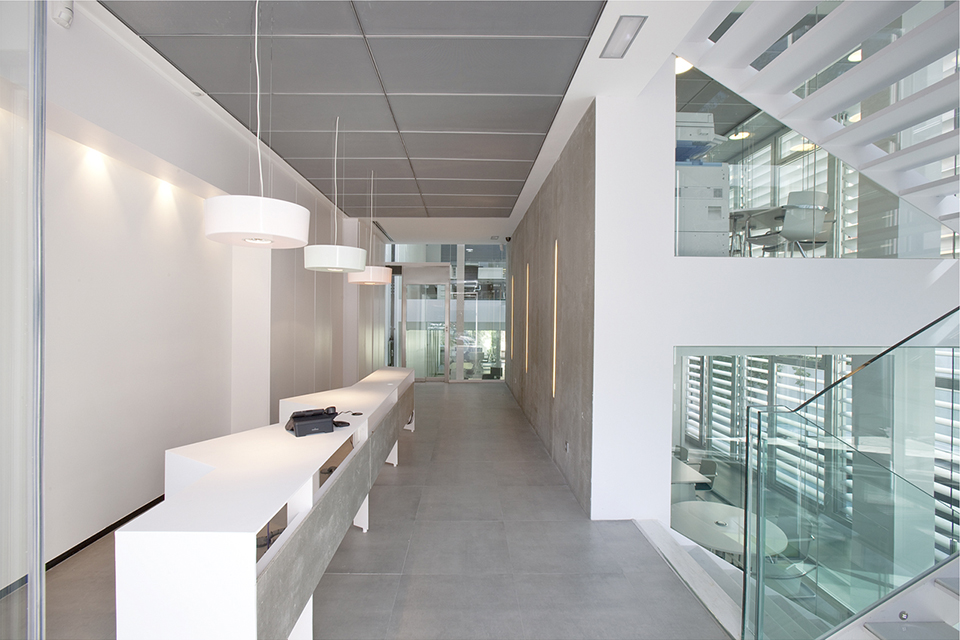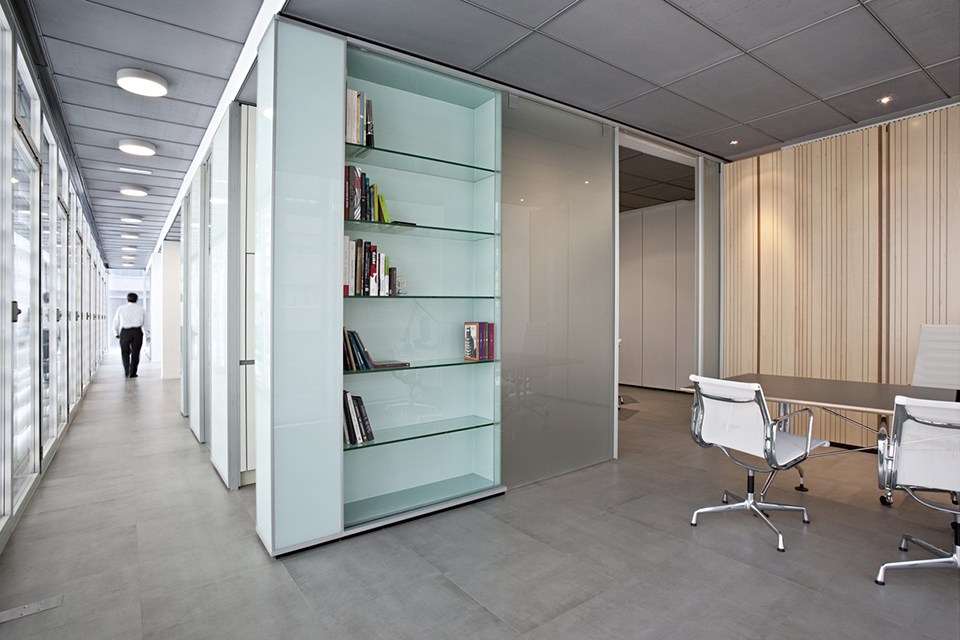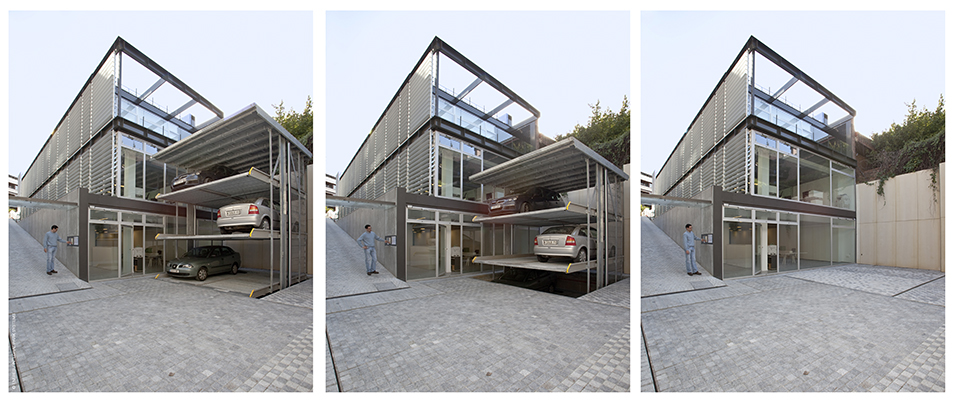Automatic Parking is a Powerful Tool for Transforming Urban Space
- Interview Marie Bruun Yde
- Fotos: Amparo Garrido
In January, the converted office building located at Apolonio Morales 29 in Madrid received the LEED Platinum Certificate for green buildings. One of the building’s key efficiency features is the integration of underground parking with geothermal exchange. The architect Luis de Pereda of Instituto Europeo de Innovación speaks about the potential of smart parking to minimize the urban footprint of cars while being combined productively with renewable energy and multi-modality.
You have refurbished Apolonio Morales 29 as a new headquarters for the construction company F. Molina. What kindof building was it before?
The original building dates from the 1980s. It had a closed façade, no interaction with the outside, poor ventilation, no natural light, and no control of solar energy. And a great deal of space was occupied by technology in an attempt to compensate for the energy problems, which resulted in high energy consumption.

The building did not have proper parking, only a backyard below street level that was filled with cars in great disorder. How did you change that?
We uncovered the building’s original structure and managed to preserve 95% of it, meaning 80% of the building’s total mass. The façade was completely transformed and opened up to the sun and air. To solve the parking situation, we created an underground mechanical parking system for 14 cars. At the same time, we integrated a geothermal system with the parking facilities. Energy is conducted into the building by means of two geothermal heat pumps. The result is higher quality bioclimatic space and energy consumption that is far below average for office buildings.

Why did you choose an automatic parking system?
We wanted to keep the surface free and unobstructed. Mechanical parking has a small footprint and is a powerful tool for transforming urban space. SAS, our local company, integrated parking and energy, providing know how and expertise in integrating thermal energy and electric charging with vehicle storage. Our partner WÖHR supplied sophisticated mechanical technology. We realized there can be added value with automatic parking. Geothermal exchange is just one component; we also installed a drainage water energy exchange water tank in it.

Which additional future perspectives for automatic parking and urban mobility do you see?
Public space is a space for social communication, so it shouldn’t be occupied or underused by car storage. Nevertheless, we need to guarantee individual mobility rights. We have to establish the means for transforming mobility through public transport networks, new mobility concepts, and urban quality. Today, mechanical parking is being extended to become multi modal parking that also accommodates bicycles, electric motorbikes, and shared vehicles, as well as hubs for electric charging. It can contribute to the transition from individual parking to shared mobility and connection. At the same time, the mobility mentality needs to change. The private ownership of vehicles as emblems of personal wealth will be replaced by car sharing. Technology is one part of this development.

Product Information
2 x WÖHR Parklift 463 D 2,0, 1 x WÖHR Parklift 462 E 2,0 Maximum vehicle length 500 cm, maximum vehicle heights 175 and 200 cm, 12 universal charging stations for electric vehicles, platform load 2,000 kg, 14 parking spaces.
Interview
Architects
The Instituto Europeo de Innovación works in the field of architecture, urban planning, engineering, industrial design, energy efficiency, sustainability and mobility. IEI acts as a project integrator within a network of partner expert companies to provide customized contextual consultancy services in complex projects with the aim of social, environmental and economic efficiency. The multidisciplinary institute has carried out projects worldwide.





